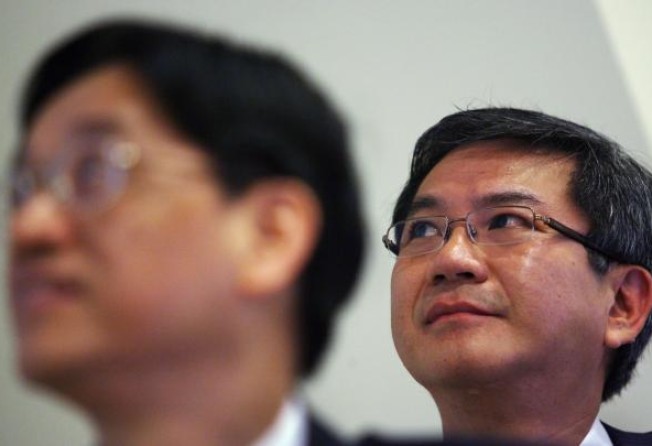
Homebuyers face squeeze on mortgage payment protection insurance
Biggest provider of mortgage protection insurance may further tighten eligibility criteria in light of increase in interest rates

The Hong Kong Mortgage Corporation may further tighten eligibility for its payment protection insurance on home loans, in light of rising interest rates.

Last month it announced it would in future offer its maximum protection - for loans of up to 90 per cent of the value - only for mortgages on homes worth HK$4 million or less, down from the previous ceiling of HK$6 million.
In a television interview yesterday, Raymond Li Ling-cheung, chief executive officer of the corporation, could not rule out further measures.
Asked if the property value threshold would come down again in light of growing market risks, Li said: "We are watching and it is possible that we will adjust the cap at any time."
The corporation is the biggest provider of mortgage protection insurance in Hong Kong. Under its insurance scheme, a buyer can put down a deposit of 10 per cent - instead of the 30 per cent required by the Monetary Authority. If a mortgage goes into default, the insurance compensates the lenders for the loss.
Last month the government doubled stamp duties for homes and non-residential properties valued at more than HK$2 million. Li said applications for its Mortgage Insurance Protection Scheme had dropped as sentiment in the market dampened.
"This month, we receive only about 40 applications a day, which is half of what we had in previous months," he said.
The scheme cannot be scrapped, because the corporation has to strike a balance between risk management and fulfilling its role to promote home ownership.
Li also said the corporation was considering a fixed-interest-rate arrangement to make its reverse-mortgage programme for elderly homeowners more attractive.
The scheme has received a lukewarm response, with only 343 applications since it was launched in 2011.
It allows old people to use their homes as collateral in return for a fixed sum payable every month for the rest of their lives.
Using a fixed rate instead of a floating rate would allow the corporation to help more applicants, Li said.